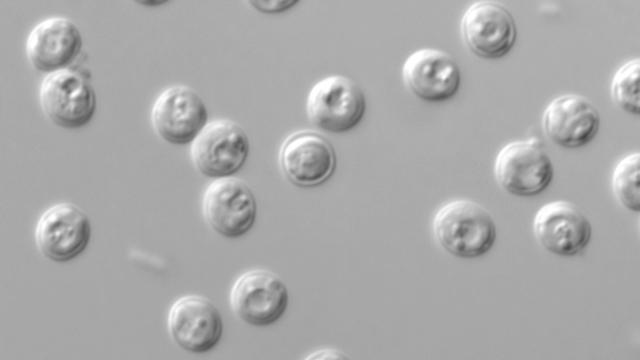More than 300,000 households in Lancashire, England have been warned to boil their water recently to kill any traces of Cryptosporidium, the BBC reports. The nasty livestock parasite, which surfaced last week, probably came from a rotting animal carcass or faeces, according to The Guardian. Lovely.
Cryptosporidium is a parasite found in livestock that occasionally makes its way into humans through our drinking water. It’s one of those nasty critters we usually lump into the “24 hour stomach bug” category, with symptoms of infection including diarrhoea and vomiting. In rare instances, Crypto will lead to severe complications in children and adults with weakened immune systems.
Traces of Crypto were first discovered in Lancashire on August 6th during routine testing at a water treatment plant. Immediately after the bug was detected, the water firm United Utilities issued a warning to customers throughout the county, asking residents to boil their water for drinking, eating, and even tooth brushing until further notice. Water samples have improved since last week, but traces of the bug remain, and residents are being asked to stay vigilant.
Crypto does crop up pretty regularly in underdeveloped countries where livestock manure seeps directly into urban water supplies. Being highly resistant to chlorine, it’s also one of the main bugs you can catch at your local swimming pool. (Please, for the love of God, don’t let your kids poop in the water. It’s a health hazard.).
But in the modern world of sophisticated water treatment centres, filters typically remove most parasite-sized particles, and an outbreak of this scale is pretty rare: There have only been two other, relatively small bouts of Crypto in the UK water mains since 2000, according to The Guardian. Still, it only takes a couple parasites slipping through the filtration system to cause a public health disaster, as evidenced by a notorious 1993 outbreak in Milwaukee, in which 400,000 people were infected by a single water plant. That was the largest waterborne disease outbreak in US history, by the way.
That’s why the recent contamination is being taken so seriously. (There haven’t been any confirmed cases of sickness, but with an incubation period of up to a week, public health officials warn that residents could start falling ill in the days ahead). An investigation into the original source of the contamination could lead to criminal charges and fines against the water companies at fault, The Guardian reports. Meanwhile, panic-stricken residents who’ve watched a few too many bio-disaster movies spent last week clearing out bottled water shelves at supermarkets across Lancashire, or hawking water for a premium on the internet.
Having to climb the shelves of Tesco for clean water
I have now done obligatory panic buying of bottled water in a #Preston supermarket. pic.twitter.com/BWHhiMk4sY
— Donal Brannigan (@Brannigand) August 7, 2015
Leave it to humans to go into full apocalypse-mode over a little bug. Silver lining? When compared with other water poisoning catastrophes of late, this one ought to blow over pretty quickly.
[BBC [The Guardian]]Top image: Oocysts of Cryptosporidium, via the CDC
